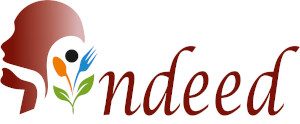Project Results
Social inclusion

The INDEED proposal promotes the social inclusion of people with dysphagia and their families. In addition to diet and nutritional modifications, the diagnosis of dysphagia has an important emotional and social impact on those diagnosed and on their families and carers. In all cultures, food is a place of encounter and satisfaction. Restricting the diet to pureed or mashed foods only aggravates the social isolation of these patients and in many cases the loss of the joy of life. In the development of the methodology and tools of the proposal, different actors related with dysphagia conditions (elderly people, people with disabilities or mental pathologies, as well as their families) will work together with experts in texturized food (speech therapists, kitchen staff, food technologists, dieticians…). Finally, the tools and methodologies will be easily applicable in any EU country, by interested parties.

Extending and developing the competences of educators and other personnel who support adult learners

In addition to families and caregivers, staff who care for people with dysphagia need to improve their skills in order to give them the necessary support. Speech therapists, kitchen staff, dieticians, therapists, social workers, nurses and other types of healthcare personnel are responsible for advising and ensuring healthy nutrition for the dysphagia collective and their families. Therefore, their participation in the project is crucial and they will not only be responsible for participating in the development of the methodology and tools of the INDEED project, but also the e- platform will have special modules aimed “at training trainers”. The results will improve the training for all the professionals involved in the management of dysphagia. In this way, and thanks to the tool developed, a network of support for the social inclusion of dysphagia will be created, allowing specialists who work in centres or with groups in which the introduction of textured diets has not yet been initiated to tackle it in a safe manner. The training for the personal who support adult’s learners will be approached in a multidisciplinary manner, which will make it particularly innovative.
Improving and extending the supply of high quality learning opportunities for adults
It aims to provide high quality training for people with special needs such as dysphagia patients, as well as families and caregivers who are often low-qualified. The project aims to develop user-friendly and effective tools for both people with special needs and low-qualified adults.

Outputs

- A methodological framework especially designed for professionals who support families, caregivers and people with dysphagia from a multidisciplinary point of view.
- A digital platform with e-learning tools adapted to the special conditions of families, caregivers and users with dysphagia. The aim is to develop innovative tools that accompany recipe books, videos and experiences around food together with training in the framework of safety and medical aspects for these users.
- An international learning meeting between trainers and users that allows the adaptation of the learning module contents and the e-learning to the requirements of the users with dysphagia as well as social integration through the participation on the development of the contents. These results will allow us to measure the results of the project.
Impact
- Improving the diet and dysphagia learning in families, caregivers and people with chewing and swallowing problems. Learning will be quantified through previous and after learning tests.
- Improving the learning about innovation in dysphagia diet for adult trainers.
- Improving the quality of life of people with dysphagia through innovations in diet.
- Improving the social integration of people with dysphagia and their families
- Improving the access to adult education for all the society.

Other results: the INDEED project will also promote the Dysphagia inclusion at a transnational level and the sense of belonging to Europe. Promoting quality training will have a direct impact on improving the quality of life and emotional well-being of people with chewing and dysphagia problems. A fluent channel of communication about food texture modification for different groups (kitchen staff, familiars, carers, patients) will be another of long-term results. In addition, the aspects that define the characteristics of textured foods for people with dysphagia differ between European countries. The project will harmonize European criteria for the management of dysphagia diets.
